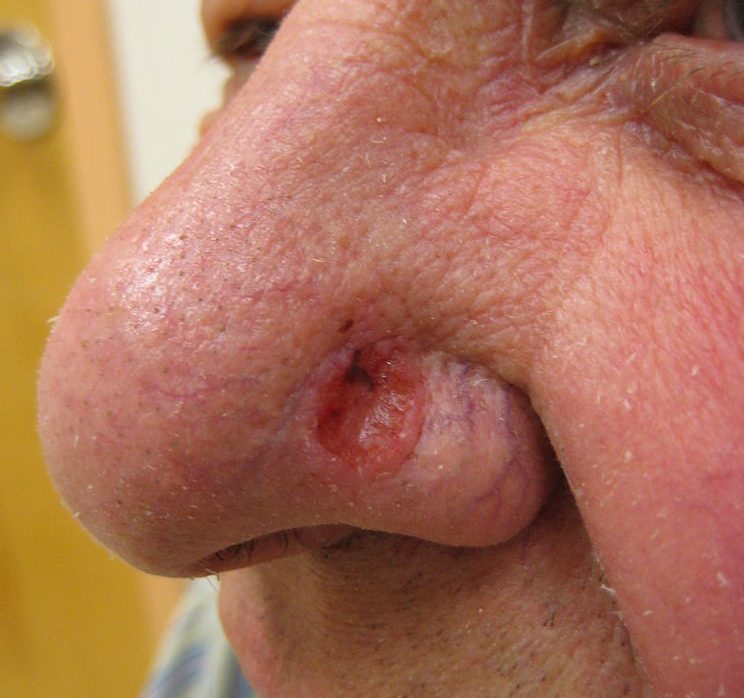 There are many different types of skin cancer, but basal cell carcinoma is the most common and most easily treatable. Basal cell carcinoma tends to occur on exposed parts of the body, usually appearing as a small growth on the face, where you tend to get the most sun. “While it rarely spreads to other areas, it’s still important to be on the lookout for common symptoms of this type of skin cancer so you can have it diagnosed and treated as soon as possible,” notes Dr. Adam Mamelak, board certified Dermatologist and Mohs skin cancer surgeon at Sanova Dermatology.
There are many different types of skin cancer, but basal cell carcinoma is the most common and most easily treatable. Basal cell carcinoma tends to occur on exposed parts of the body, usually appearing as a small growth on the face, where you tend to get the most sun. “While it rarely spreads to other areas, it’s still important to be on the lookout for common symptoms of this type of skin cancer so you can have it diagnosed and treated as soon as possible,” notes Dr. Adam Mamelak, board certified Dermatologist and Mohs skin cancer surgeon at Sanova Dermatology.
Common Signs of Basal Cell Carcinoma
Most people who develop basal cell carcinoma will notice an unfamiliar skin growth or sore. These are most often found on the face, but they can occur anywhere on the body. These sores tend to be waxy or pearly in their appearance and can vary greatly in size. In some cases, the sore will be sunken in the middle and raised around the edges, but it can also be flat. Often times, these cancerous growths or sores will also bleed easily. Most people assume they’re a pimple or general sore at first but will become concerned when they notice it doesn’t heal or go away over time.
Diagnosis and Treatment
“If you have a growth on your body that matches these symptoms, you want to schedule an appointment with a dermatologist as soon as possible,” urges Dr. Mamelak. Your dermatologist will evaluate the skin lesion and, if he or she thinks it may be cancerous, might recommend a biopsy to remove a small portion of it for testing. If the test confirms basal cell carcinoma, your doctor may recommend surgical removal of the entire growth or another form of treatment.
From there, you will just want to return to your dermatologist’s office regularly for follow-up examinations and keep an eye out for any new growths. Typically, there is no need for radiation or other more intensive treatments that you would typically need for other types of cancer.
Contact Us
Basal cell carcinoma is a locally destructive form of skin cancer, and should be taken seriously. If you’re experiencing any symptoms suspicious for skin cancer, be sure to contact us to schedule an appointment right away.
Photo credit: (1) James Heilman, MD 